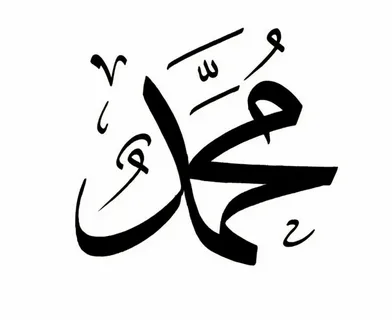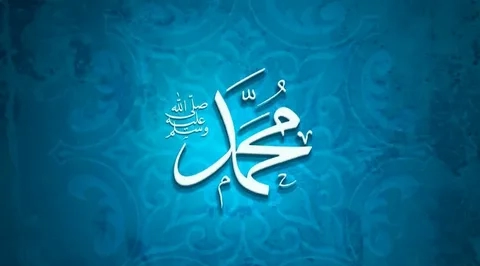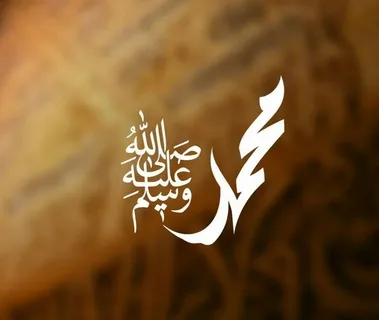The death of the Prophet Muhammad (peace be upon him) is a pivotal moment in Islamic history that shaped the future of the Muslim ummah (community). It marks not just the passing of a man, but the end of divine revelation. The way Prophet Muhammad lived his final days and the way his companions reacted to his passing offer important lessons on faith, leadership, and human mortality.
The Last Sermon

Before his death, Prophet Muhammad delivered his famous last sermon during his final pilgrimage (Hajj) in 632 CE. In this sermon, he reminded the Muslim community of their obligations to one another and emphasized equality, justice, and the importance of treating others with kindness. One of the most notable messages from this sermon was his statement:
“O people, your God is one and your father is one. There is no superiority of an Arab over a non-Arab, or of a non-Arab over an Arab, or of a white person over a black person, except by piety.”
This sermon serves as a timeless message of unity and justice.
The Prelude to His Passing
As the Prophet’s life neared its end, there were signs that the time was coming. Prophet Muhammad (PBUH) felt an increasing sense of illness but continued his duties as a leader. He also made a visit to the graveyard of Al-Baqi’, where many of his close companions were buried. He prayed for them, and it was a symbolic farewell.
The Final Illness of Prophet Muhammad
The final illness of Prophet Muhammad lasted about two weeks. He experienced a high fever and pain, yet he showed remarkable patience and strength. Despite his weakening condition, he made efforts to continue his spiritual and leadership responsibilities, including leading prayers whenever he had the strength.
The Role of Aisha in His Last Days
Aisha, the beloved wife of the Prophet, played a central role in caring for him during his final days. Prophet Muhammad spent his last days in her home, and it was in her arms that he passed away. The deep love and connection between them is often highlighted, as Aisha reported his every word and action during his illness. She provided comfort and care, and the Prophet was quoted saying, “I wish to meet my Lord,” signifying his readiness to depart from this world.
The Farewell Prayer
Despite his illness, the Prophet led one last congregational prayer. This prayer was particularly emotional for his followers, as they sensed that their beloved Prophet would soon leave them. It was during this time that the Prophet asked Abu Bakr to lead the prayers in his place, signaling Abu Bakr’s future role as leader of the Muslim community.
The Last Moments of the Prophet

On Monday, June 8th, 632 CE (12th Rabi al-Awwal in the Islamic calendar), the Prophet Muhammad took his final breaths. His last words were filled with supplication and a deep connection with God: “O Allah, with the supreme communion (in Paradise).” He passed away peacefully in Aisha’s arms, leaving a profound sense of loss among his companions.
The Day of the Prophet’s Death
When news of the Prophet’s death spread through Madinah, shock and disbelief struck the Muslim community. Some could not accept the reality of the situation. Umar ibn al-Khattab, one of the Prophet’s closest companions, was overcome with emotion and initially refused to believe that the Prophet had passed.
The Aftermath of His Death
The grief in Madinah was overwhelming. The companions of the Prophet were in tears, and there was a collective sense of loss. The leader of the Muslim community, the man who had guided them through revelation and leadership, was no longer with them.
Abu Bakr’s Leadership After the Prophet’s Passing
Amidst the chaos, Abu Bakr, the Prophet’s close friend and the first caliph, delivered a powerful message that brought calm to the people. He reminded them, “If anyone worships Muhammad, then Muhammad is dead, but if anyone worships Allah, then Allah is alive and will never die.” This statement solidified the reality of the Prophet’s mortality and helped the community transition from a focus on the man to the eternal message of Islam.
The Burial of the Prophet Muhammad
The Prophet Muhammad was buried in the very place where he passed away—the room of Aisha, within his mosque in Madinah. His burial was a simple and somber affair, attended by close companions who performed the funeral rites with deep reverence. To this day, the Prophet’s grave remains a place of great spiritual significance for Muslims.
The Significance of His Death in Islam
The death of the Prophet Muhammad marked the end of prophethood but not the end of his message. It was a moment of profound sorrow, yet it also underscored the eternal nature of Islam’s teachings. The companions knew that the work of spreading Islam and adhering to the Prophet’s teachings had to continue.
The Legacy of Prophet Muhammad
Prophet Muhammad’s legacy lives on through his teachings, the Quran, and the example he set in his life. For Muslims, his death is remembered not only as the loss of a beloved leader but as a reminder of their duty to continue living by his principles. The values he instilled—compassion, justice, and dedication to faith—continue to resonate across the world.
Read more: how many times is muhammad mentioned in the quran
Reflections on Mortality and Faith
The Prophet’s death offers Muslims a profound lesson on mortality. Islam teaches that life is temporary, and everyone will face death. However, it also emphasizes the importance of preparing for the afterlife by leading a life of faith, humility, and service to others.
FAQs
When did Prophet Muhammad die?
Prophet Muhammad died on June 8, 632 CE (12th Rabi al-Awwal in the Islamic calendar).
Where is Prophet Muhammad buried?
He is buried in his mosque, Al-Masjid an-Nabawi, in Madinah, in the chamber of his wife Aisha.
How did the Prophet’s death affect his companions?
His companions were initially shocked and heartbroken, but they found solace in the teachings of Islam and the leadership of Abu Bakr.
What are the key messages from the Prophet’s final sermon?
The final sermon emphasized equality, justice, and the importance of treating others with kindness, reminding Muslims of their duties to one another.
How do Muslims honor the death of Prophet Muhammad?
Muslims honor his memory by following his teachings, sending blessings upon him in prayers, and reflecting on his life and character.
Conclusion
The death of Prophet Muhammad was a moment of immense sorrow, yet it was also the beginning of a new era for Islam. His teachings and legacy remain alive, guiding over a billion Muslims worldwide. The Prophet’s life serves as an eternal source of wisdom and inspiration, reminding us that while life is fleeting, faith and deeds endure.


